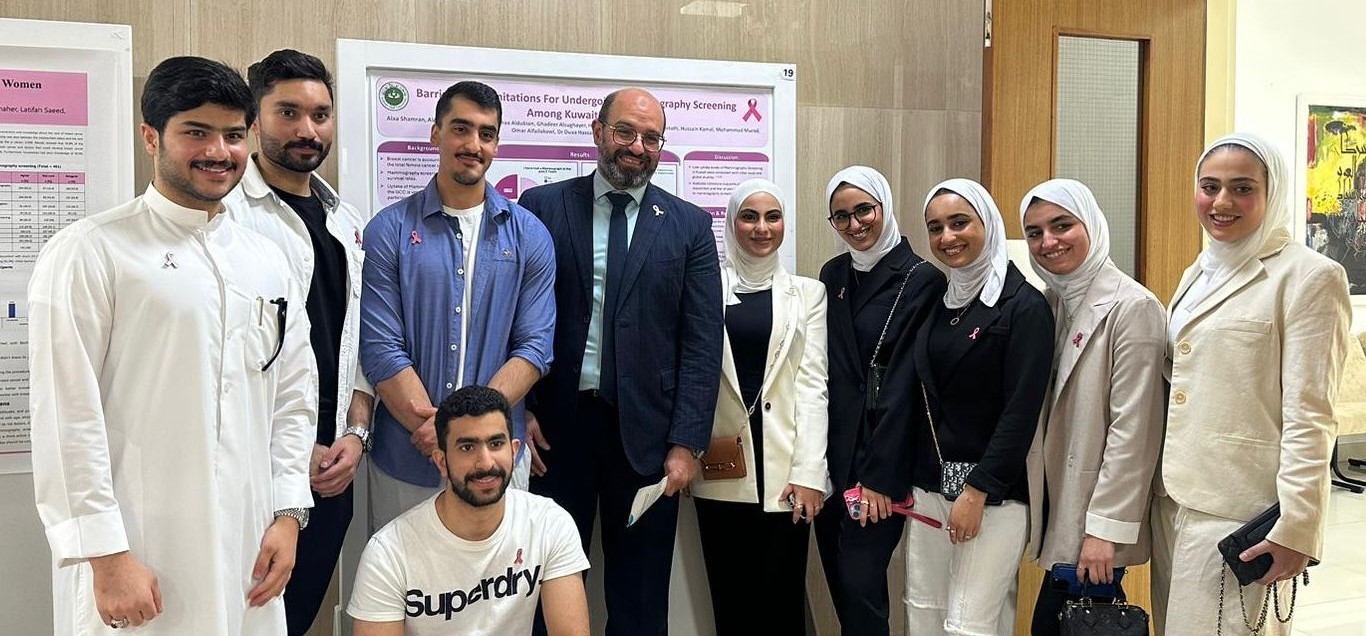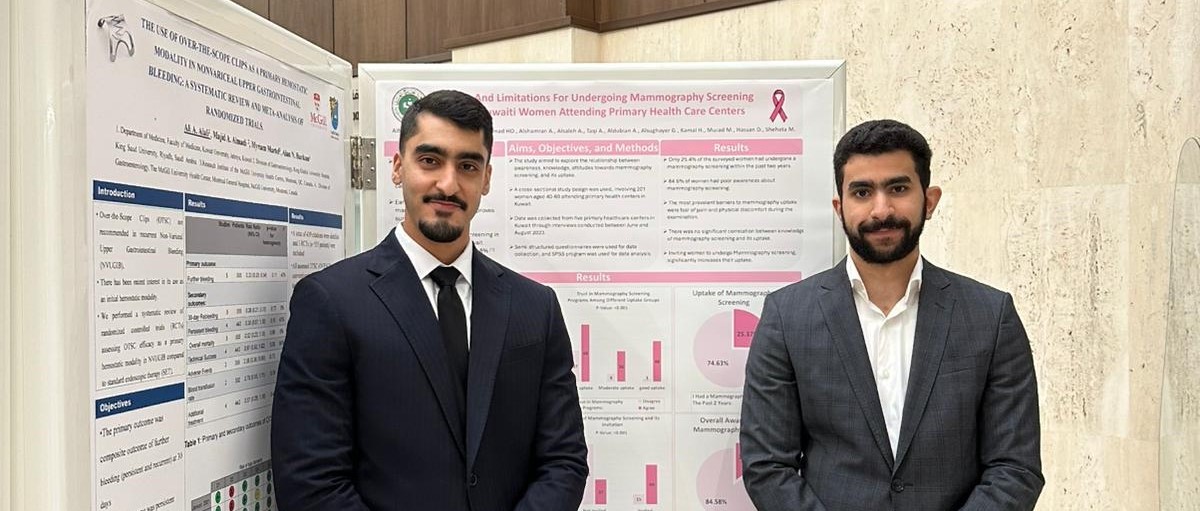
AGU Students Achieve Global Publication for Early Breast Cancer Detection Study
Arabian Gulf University
31 Oct, 2025
A team of students from the College of Medicine and Health Sciences at Arabian Gulf University (AGU) has achieved a scientific milestone with the publication of their research in BMC Primary Care, a global journal ranked in the first quartile (Q1) for scientific impact. The research, conducted by the students as part of the community-oriented research programme, addressed the barriers limiting women's adherence to early breast cancer screening in the State of Kuwait.
The student research team leader, Omar Al Failakawi, said: "In this study, we sought to understand the real reasons behind the low rates of breast cancer screening. The percentage of those who underwent screening within the past two years did not exceed 25.4%, while more than half of the participants (52.2%) had never undergone it, despite the vast majority being aware of the national screening programme."
He added: "Among the most prominent barriers leading to women's low adherence to regular screening were the fear of pain and physical discomfort, and a lack of knowledge regarding the correct timing and frequency of the screening. However, the most significant finding was that receiving a direct invitation from health authorities to undergo screening was linked to a notable increase in participation rates, which confirms that mere awareness of the programme's existence is not sufficient unless supported by practical steps that motivate and encourage women."

These findings highlight the need for more effective awareness campaigns, organised invitation and reminder systems, and professional consultations to reassure women. This would ensure an increase in early breast cancer detection rates and reduce its health and economic burden in Kuwait.
For his part, student researcher Hussain Alostad described the experience, saying: "This research journey was enriching on all levels. We gained practical skills in data analysis and direct communication with community members during the interviews we conducted at health centres. The Family and Community Medicine Department at AGU played a significant role in preparing and supporting us from day one. They helped teach us the fundamentals of scientific research and provided all the resources that contributed to this success. We extend our thanks to our research supervisors who guided and directed us throughout the project."
Alostad added: "After completing this research, we were given the opportunity to present its findings at the 13th Research Day at AGU, where, by the grace of Allah, we won third place. We also participated in the 29th Scientific Poster Conference at Kuwait University. The culmination of our efforts was publishing in a journal of this caliber, which makes my colleagues and me proud of these achievements and gives us strong motivation to continue our journey in scientific research."
The main research supervisor, Professor Dr Mohamed Hany Shehata, commented on the achievement, saying: "This accomplishment is a true embodiment of our university's philosophy of preparing future leaders in the health sector. The community-oriented research programme moves students from the lecture halls to the heart of the field, allowing them to learn by practice and engage with real-world health challenges. This direct interaction hones the student's character as a researcher and a leader and enables them to provide innovative, evidence-based solutions, which is reflected in this outstanding research."
He explained that reaching the level of publication in an indexed journal is not mandatory for our students, "but it requires passion, commitment, patience, and perseverance, which this research team has demonstrated with great competence, by the grace of Allah the Almighty."
Professor Shehata also praised the publication, noting that it reflects the quality of research training students receive at the university. He pointed out that student participation in internationally published scientific research contributes to preparing a generation of doctors capable of contributing to the advancement of medical knowledge at regional and international levels.
From their side, the research team affirmed that their goal for the study was to support national efforts to enhance health awareness and empower women to undergo regular screenings for early detection, thereby contributing to higher recovery rates and reduced complications.
It is noteworthy that the AGU encourages its students to engage in scientific research from the early stages of their studies. It provides a stimulating academic environment that helps hone research and scientific publishing skills in accordance with the highest international standards.
